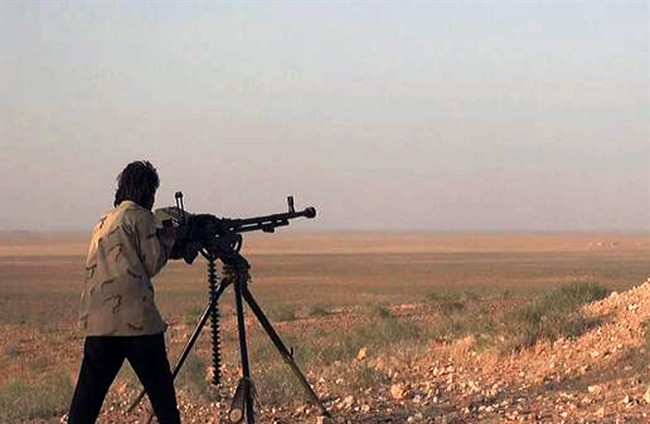OTTAWA – The menace posed by the Islamic State of Iraq and the Levant is the conflict that keeps Canada’s new top military commander awake at night.

Gen. Jonathan Vance, who took over as the country’s 19th chief of defence staff on Friday, says the rise of an extremist state in the Middle East is not something that can go unchallenged by the West.
“The most worrying one right now, the most threatening is the Islamic State,” Vance said in an interview with The Canadian Press.
Countries in the region that are trying to develop democratic institutions and the rule of law cannot do so with a caliphate, bent on exporting terror, smack in the middle of them, he said.
His geo-political take stands in contrast to recent comments by the incoming chairman of the U.S. Joint Chiefs of Staff, marine Gen. Joseph Dunford, who described a resurgent Russia as the biggest threat.
READ MORE: Canadian bombers conduct third mission against ISIS in hotly contested area
Dunford told his confirmation hearing before the U.S. Congress last week that Vladimir Putin’s regime is a nuclear power with the capability of violating the sovereignty of other nations.
“If you want to talk about a nation that could pose an existential threat to the United States, I’d have to point to Russia,” Dunford told U.S. senators. “If you look at their behaviour, it’s nothing short of alarming.”
Asked to list the major security threat facing Washington, Dunford told lawmakers that Russia was on top, followed by China and North Korea. The Islamic State was in fourth place.
Vance did not stack the threats to Canada. He has said the country’s contribution to checking Russian ambitions in eastern Europe is significant and will remain so, but the Islamic State has shown its willingness to create terror on Canadian soil.
The Harper government alternates between the Islamic State and Russia in terms of its political rhetoric; and Vance’s comments provide an interesting glimpse into how the military sees the landscape ahead of this fall’s election where issues of national security are expected to be front and centre.
The coming campaign will also see the government’s record on funding the military put to the test.
READ MORE: New defence chief pledges to end misconduct
Vance’s predecessor, retired general Tom Lawson, managed through a period of severe cuts, amounting to $2.5 billion on an annual basis. Prime Minister Stephen Harper sent a very clear message to his new defence chief Friday in terms of his expectations.
“Within the budgetary constraints to which we are all subject, your goal is to maintain a modern, combat-capable, highly-trained professional force, one that I truly believe is the best for its size in the entire world,” Harper said.
In the interview, conducted prior to his swearing in, Vance said he has confidence that the current government will not “over-commit” the Canadian Forces in terms of international engagements.
But there was also tacit recognition that despite the Conservative promise to inject more money after 2017, budgets will remain tight and the policy discussion, particularly around procurement, rests on the military’s ability to articulate its needs as well as predict future threats.
“That is a difficult discussion to have because you’re not sure,” he said. “You risk-manage the future and you have finite budgets to get the capability needed.”
Asked about the government’s promise to update the country’s defence policy – known as the Canada First Defence Strategy – Vance said the matter is still before cabinet for consideration.
The plan was presented months ago by Lawson and is thought to be on the shelf until after the fall election.

Comments